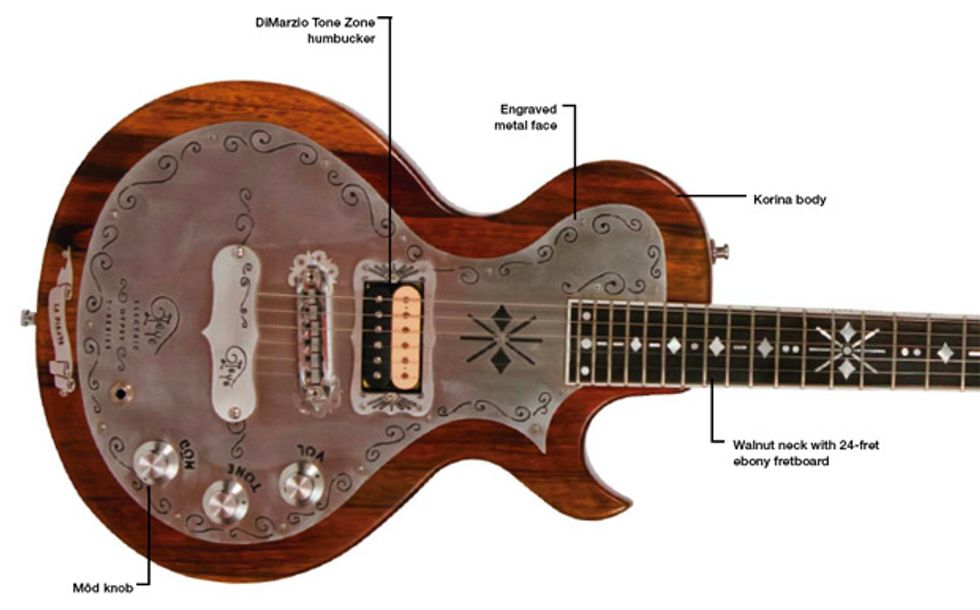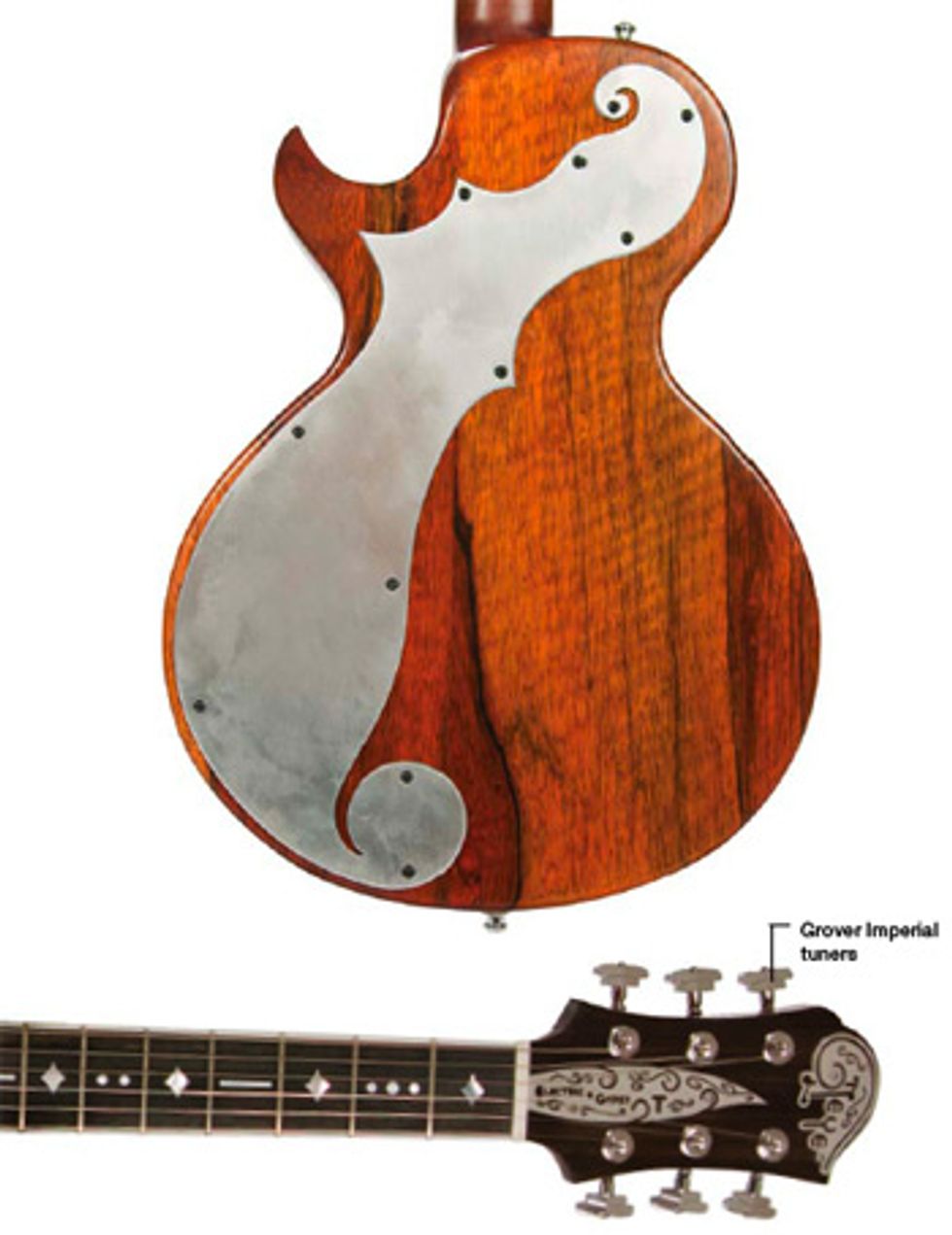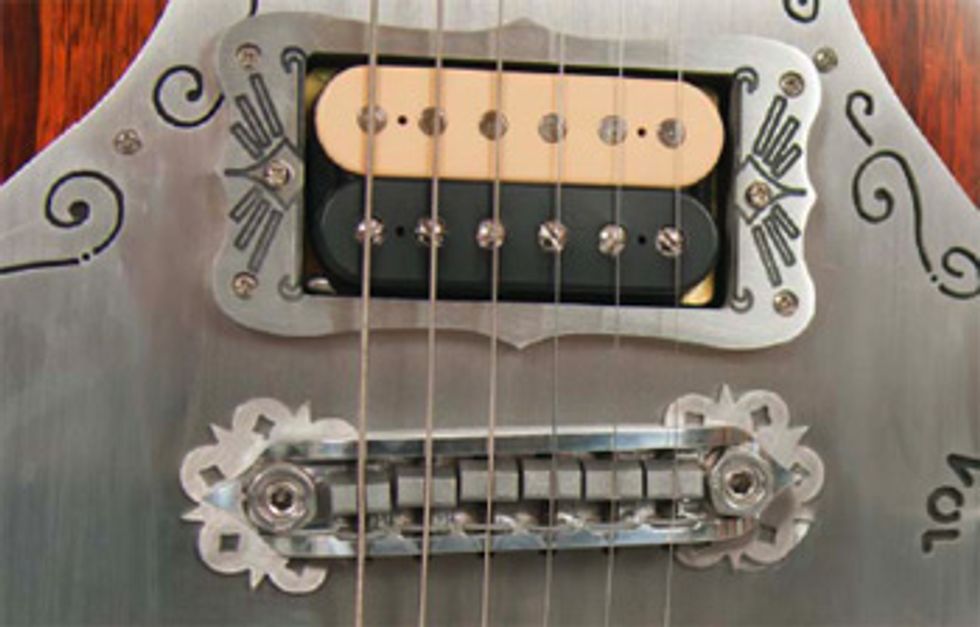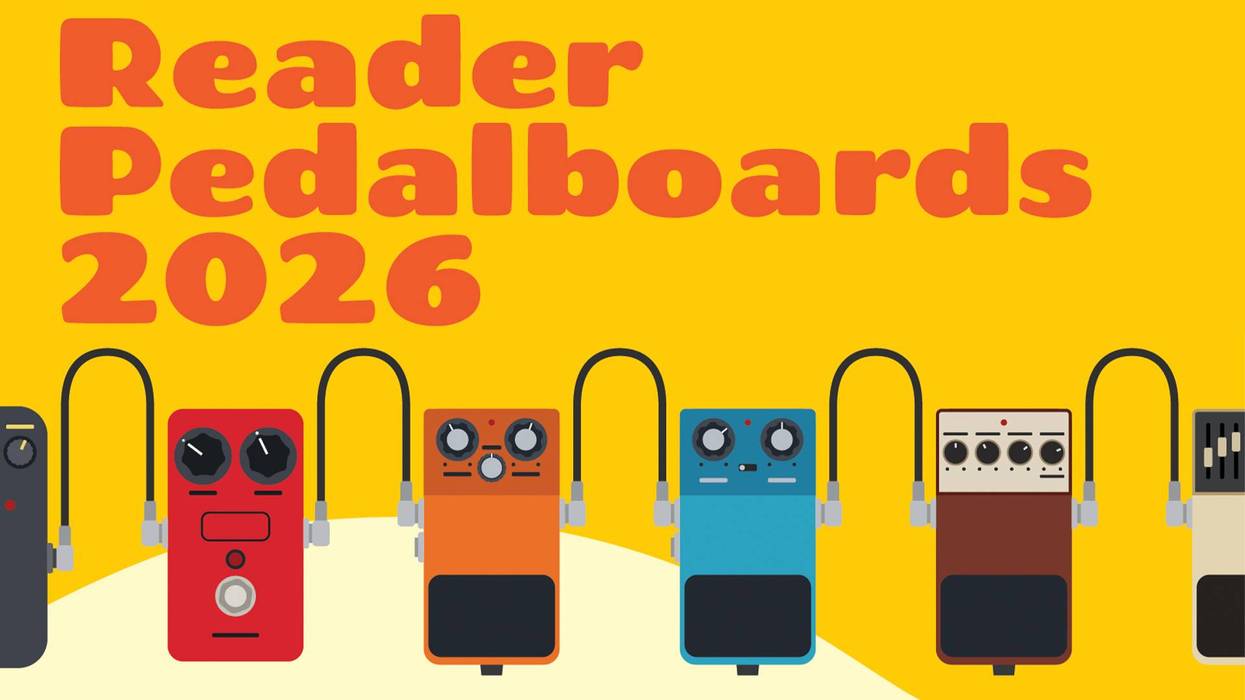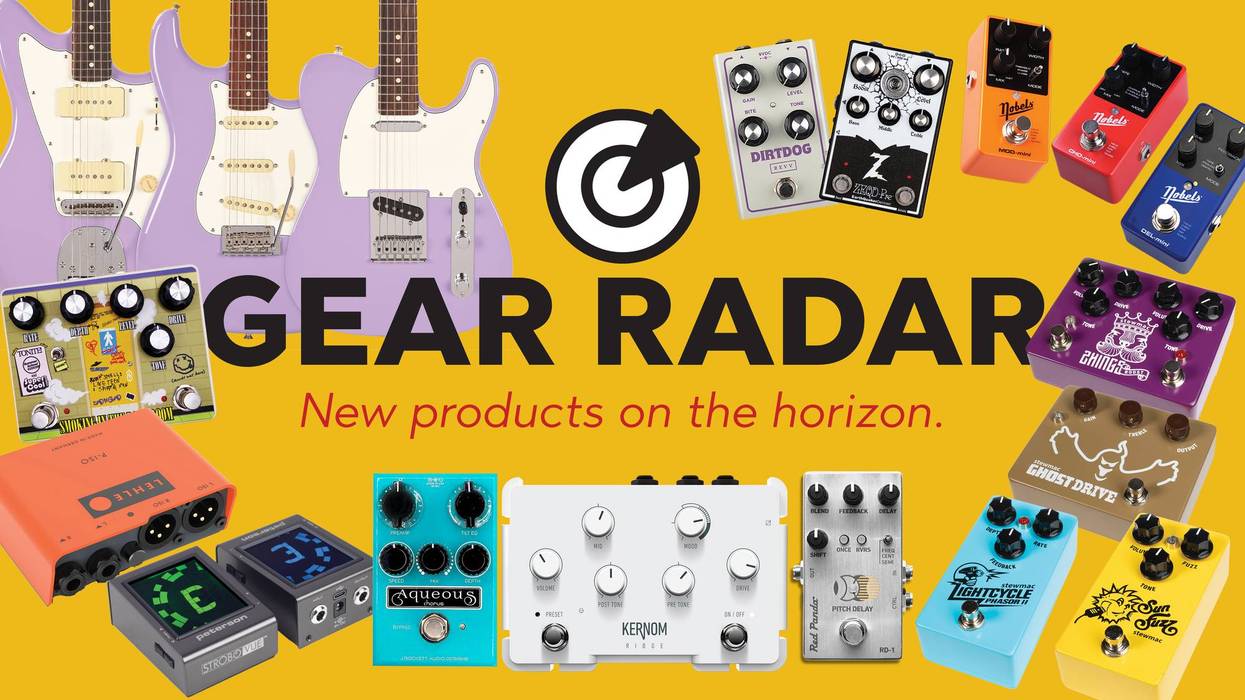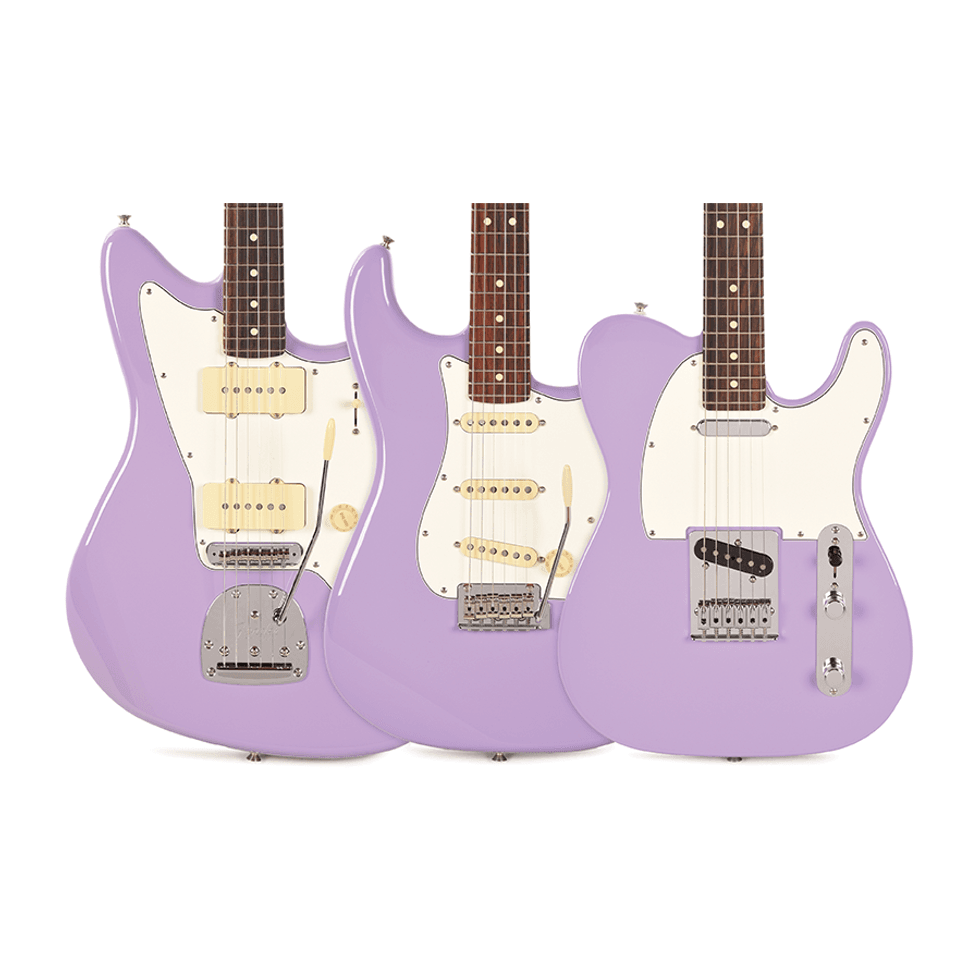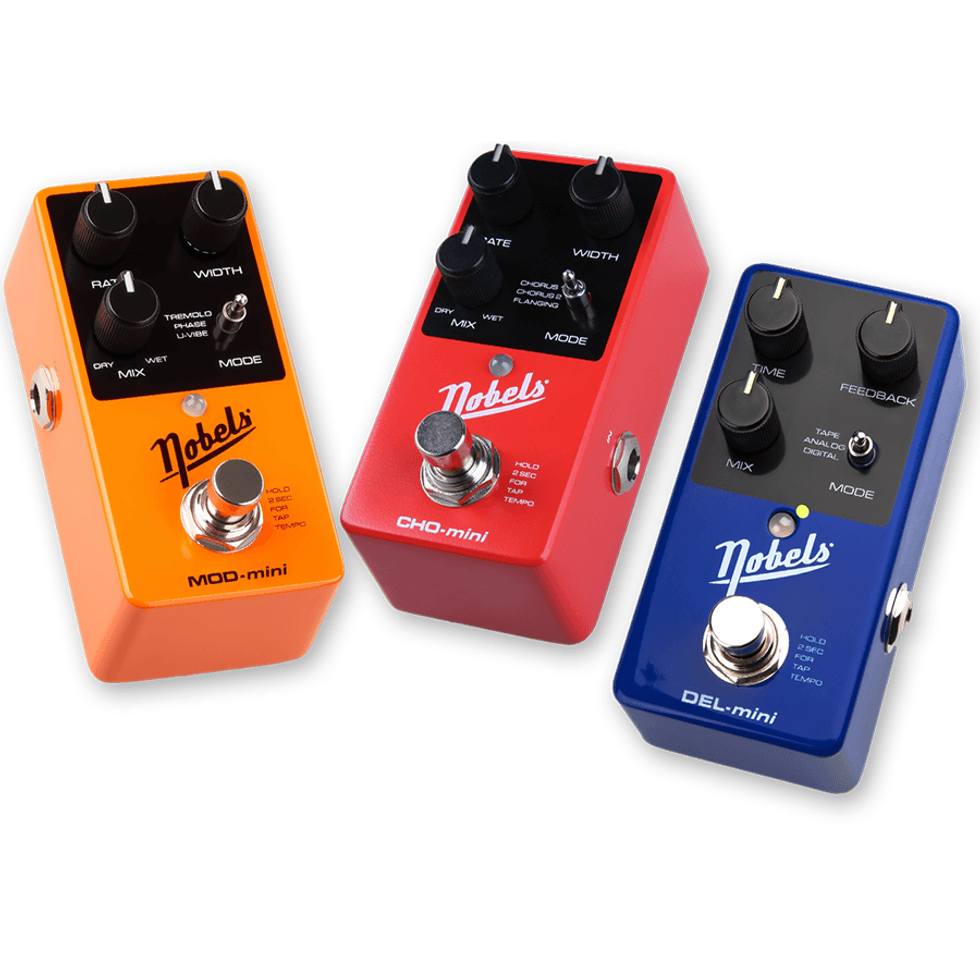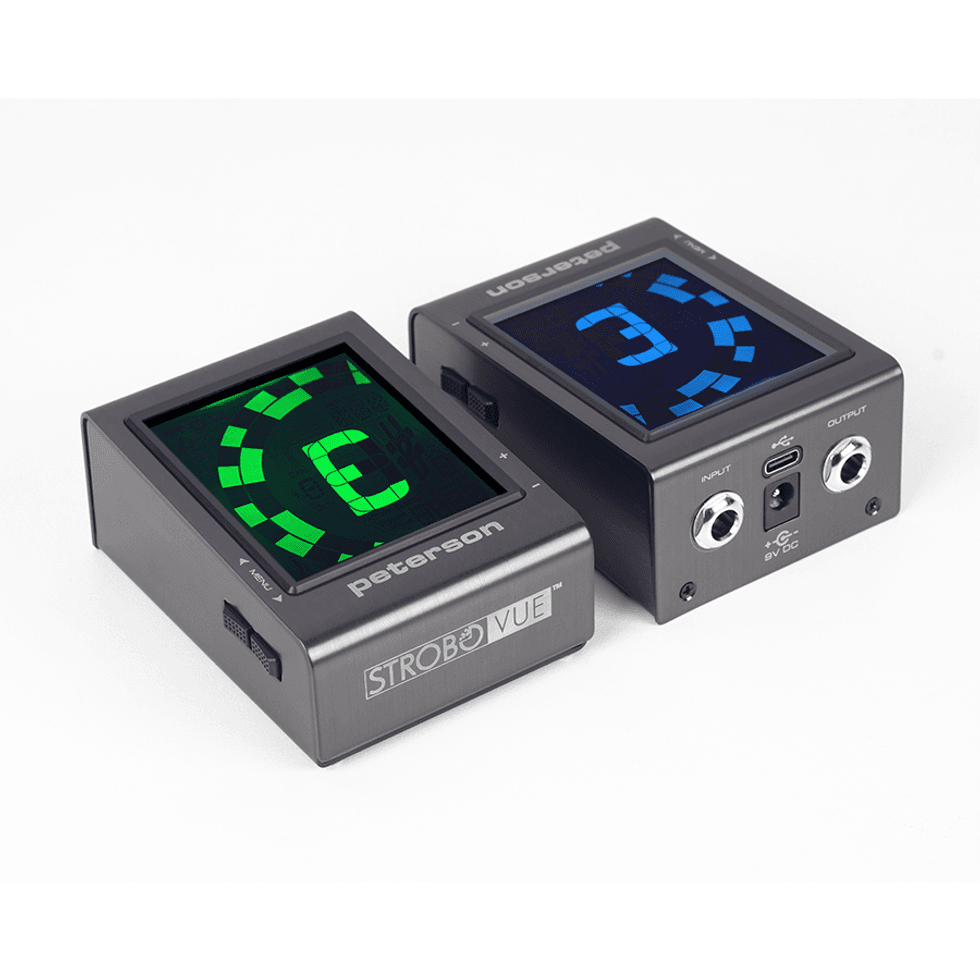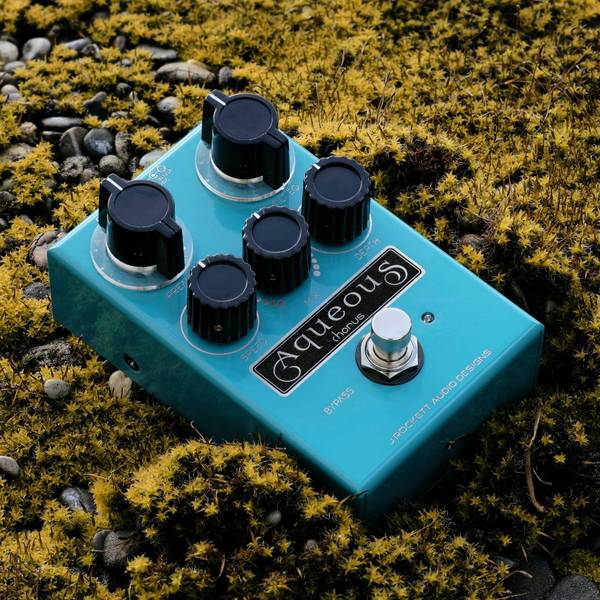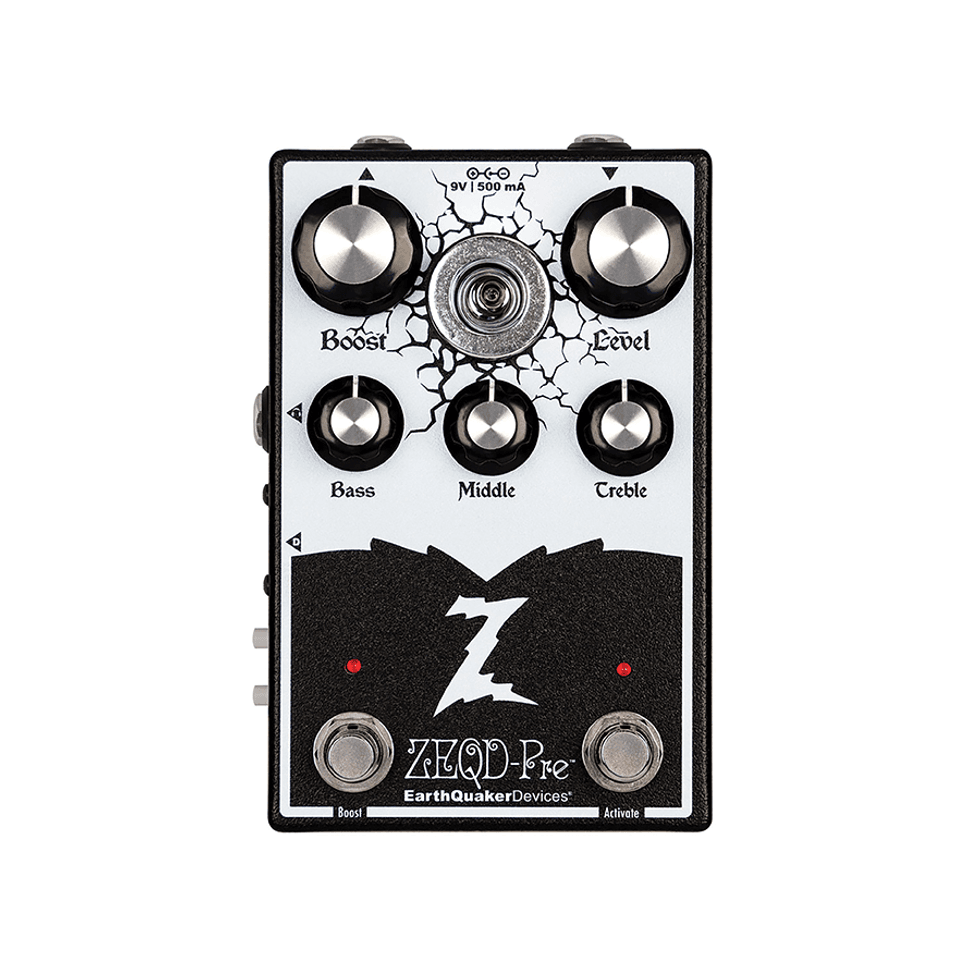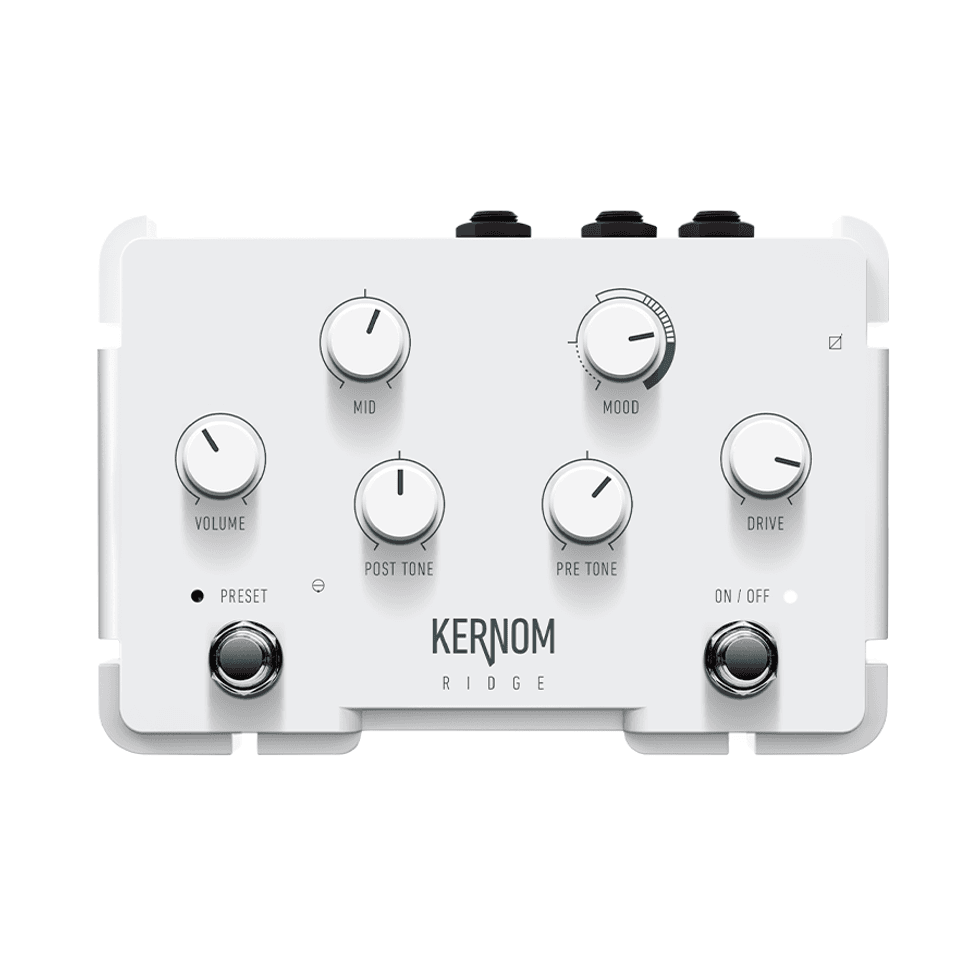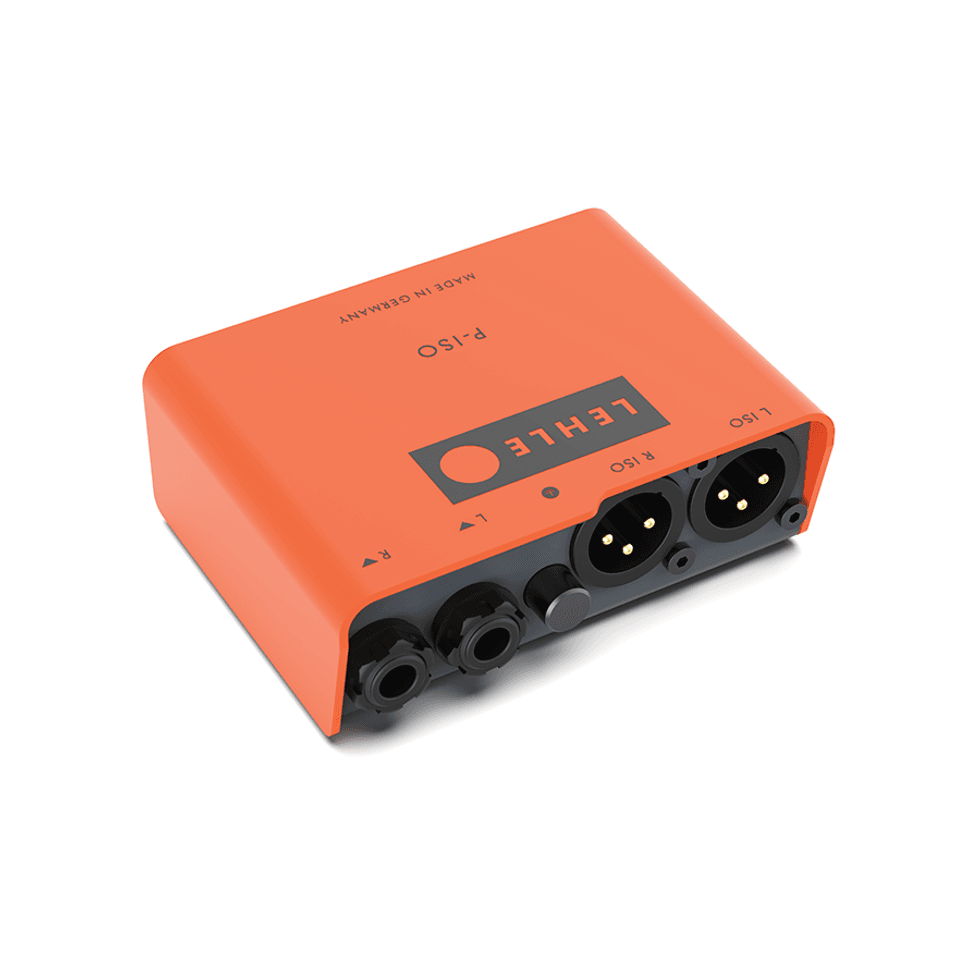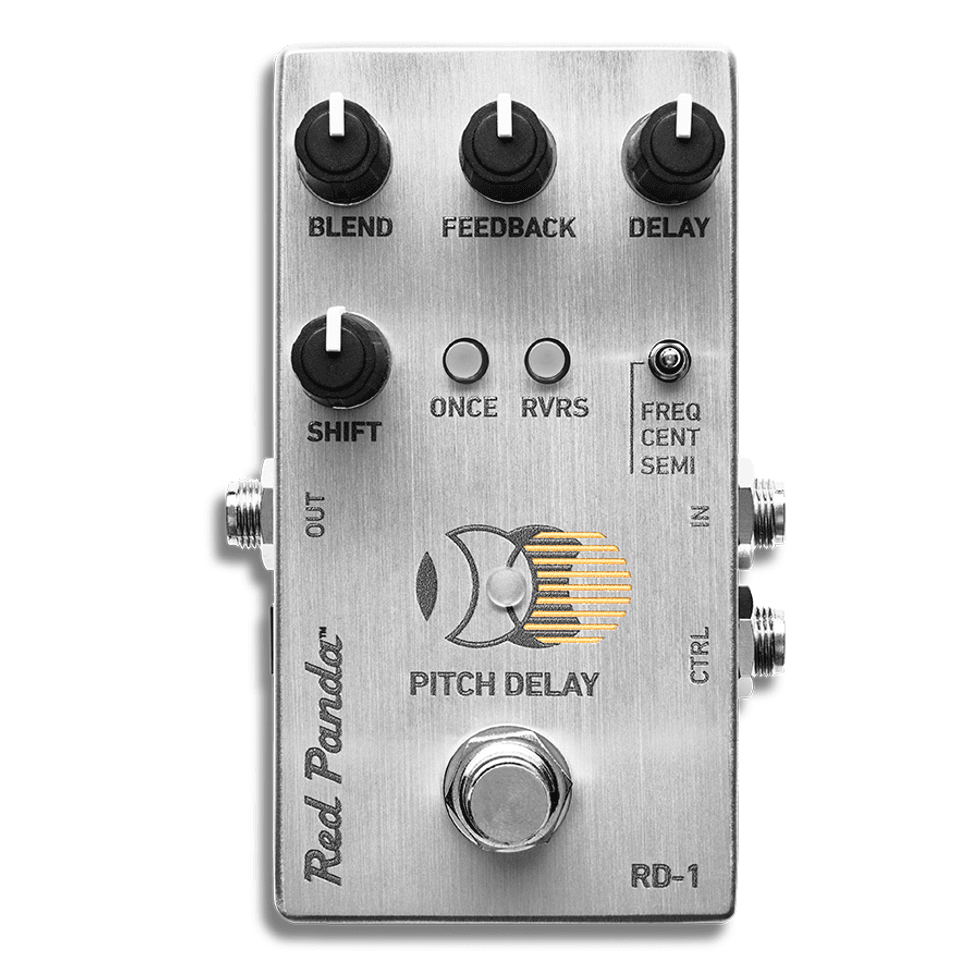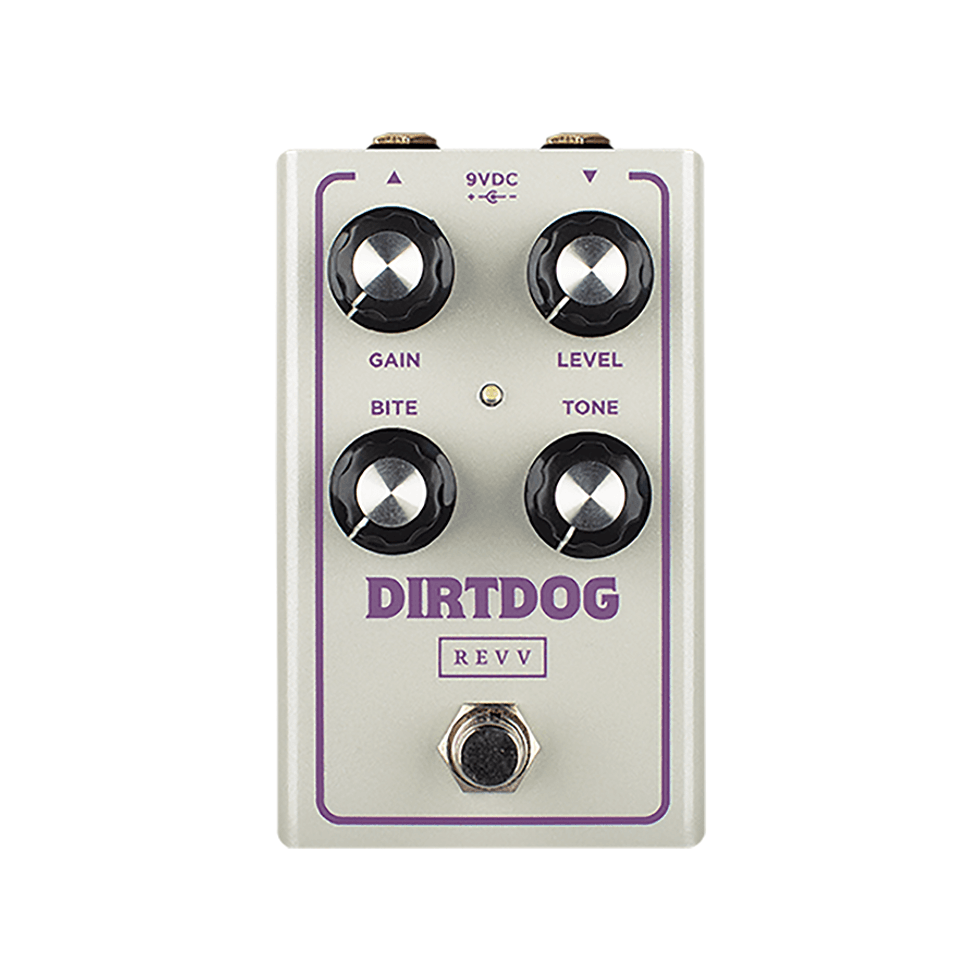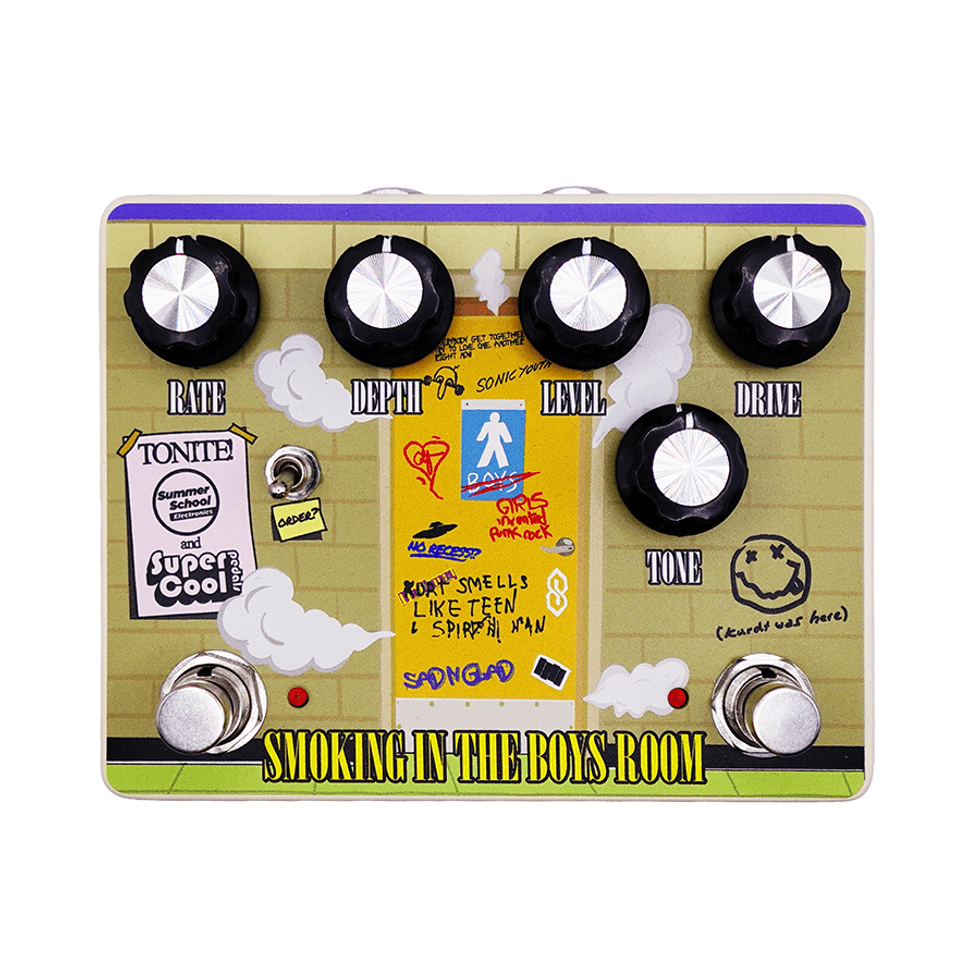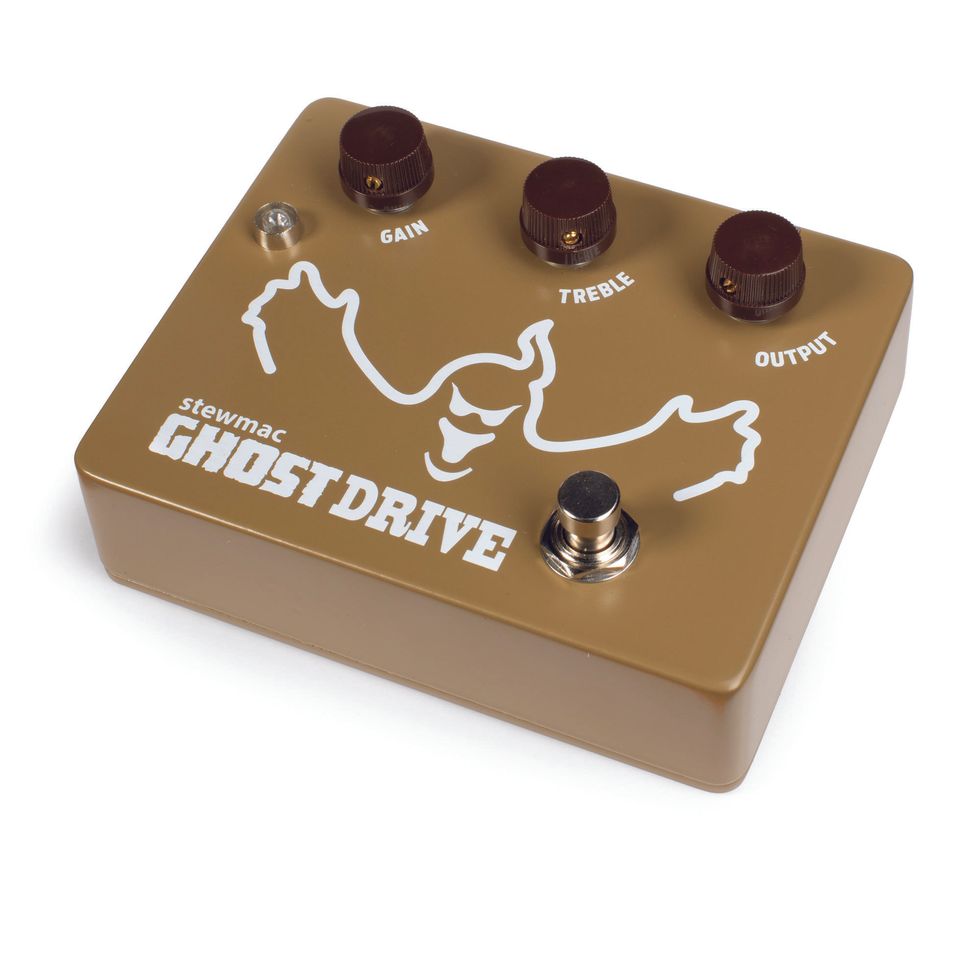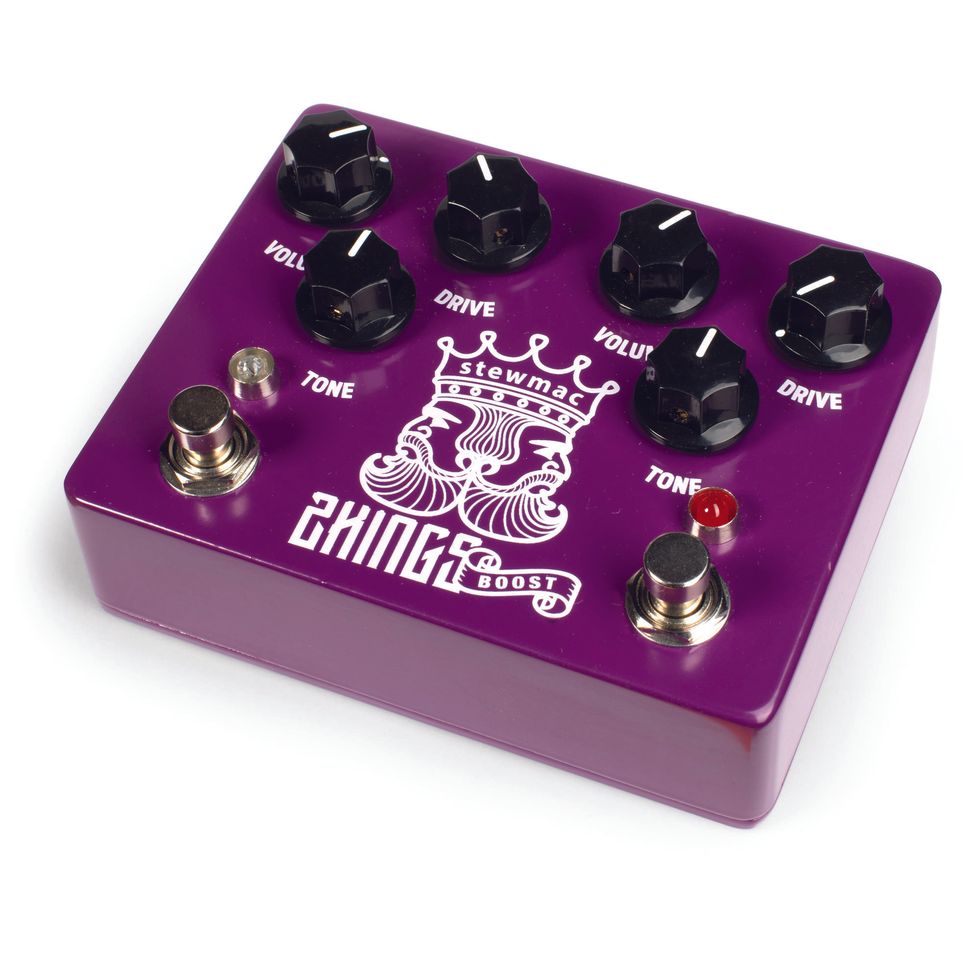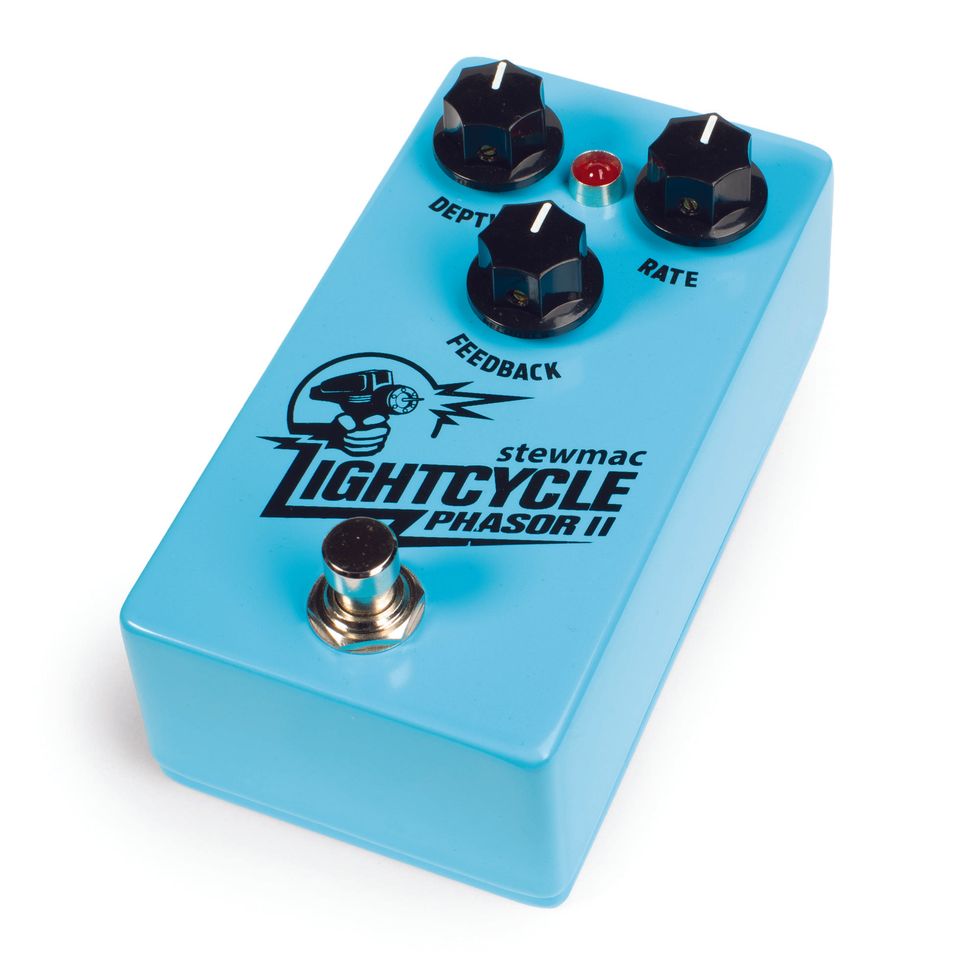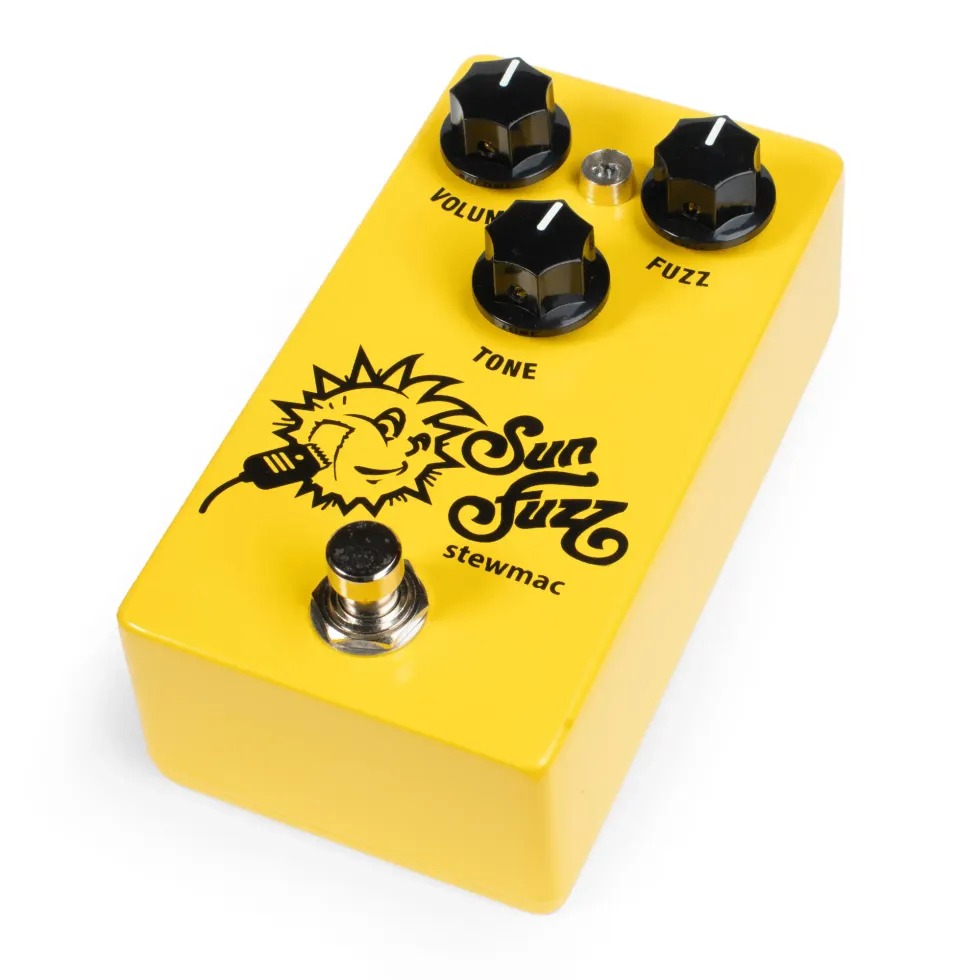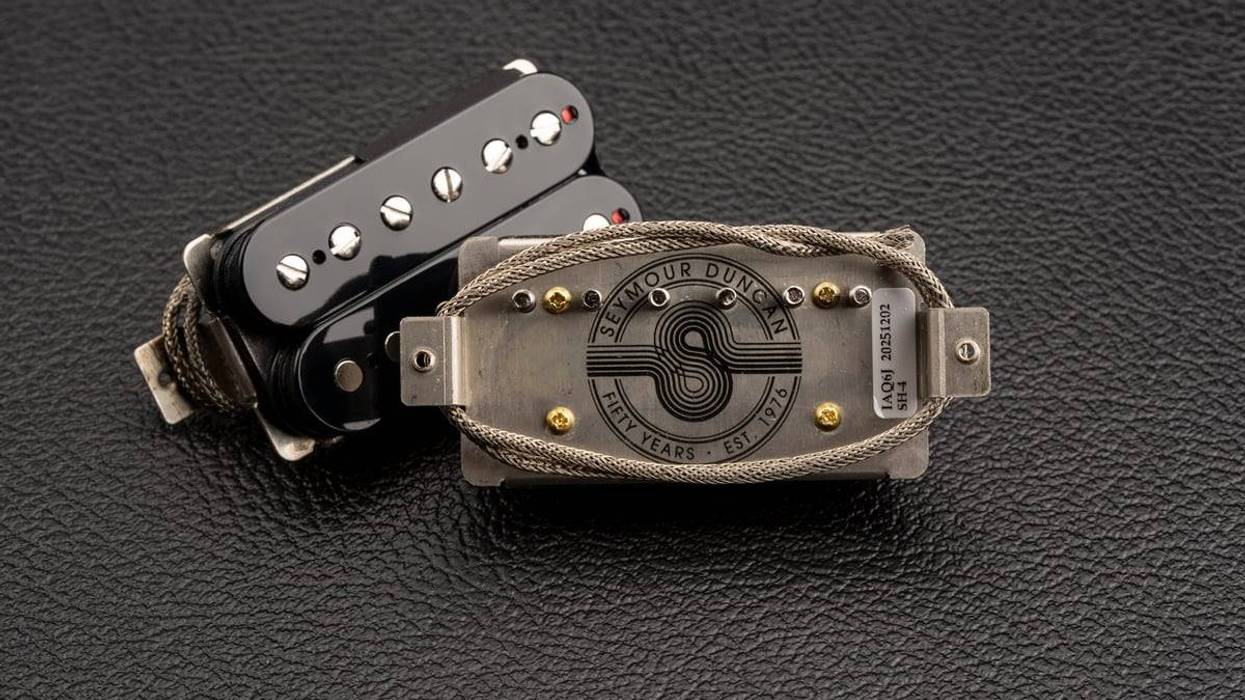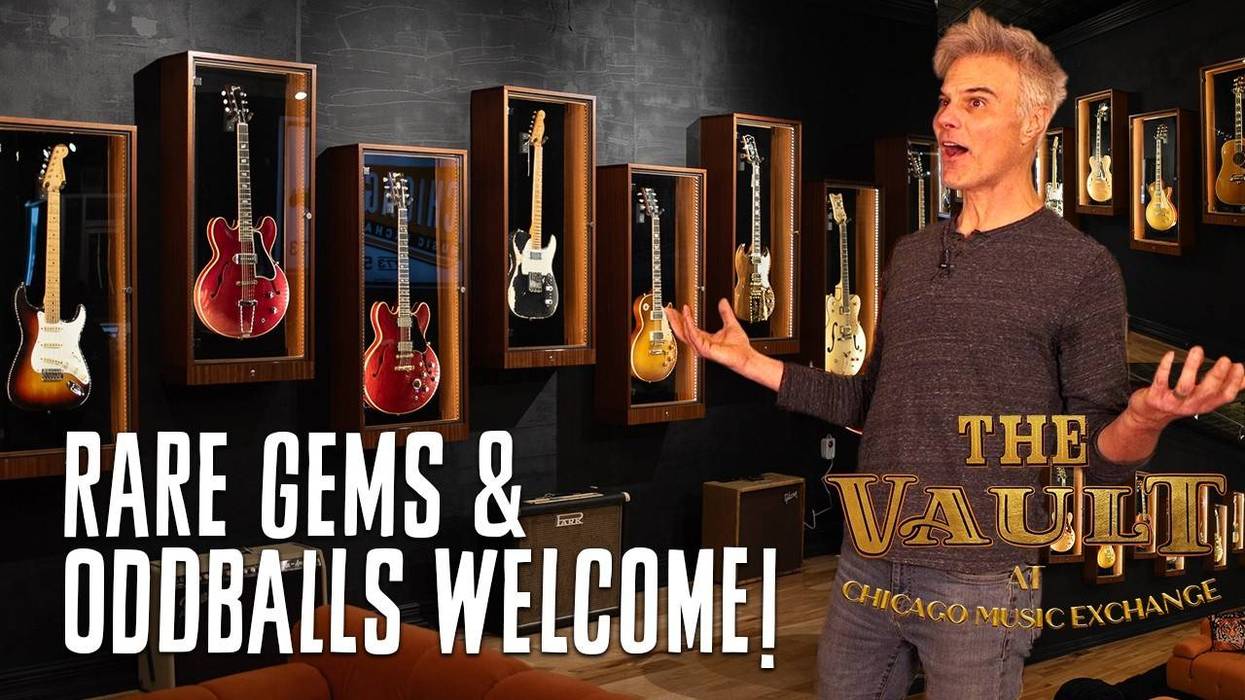| Download Example 1 Mood Control on 0 | |
| Download Example 2 Mood Control on 10 | |
| Clips recorded directly into a Line 6 DT50 112 amplifier mic'ed with a Shure SM57 into ART Tubeamp Studio preamp into Garage Band. | |
At first glance, a Teye guitar could easily be
mistaken for one of the rare metal-faced
guitars that made Tony Zemaitis a legendary
luthier in the 1970s and a favorite of elite players
from Keith Richards to Chris Robinson.
But though the design homage is clear, the
resemblance is mostly superficial. Thoughtfully
designed in all aspects—from their proprietary
hardware and electronics to handrubbed finishes—Teye guitars occupy a singular place in
the world of boutique instruments.
These excellent axes are the creation of
Teye, a Dutchman who resides and works in
Austin, Texas. As a rock ’n’ roll-loving teenager,
Teye began tinkering with his electric
guitars under the direction of his engineer
father. Eventually, the two got into guitar
making together, creating a Lucite instrument
so that Teye wouldn’t have to take a beloved
see-through Dan Armstrong to gigs.
Teye studied classical guitar at the
Netherlands Conservatory of Music and
devoted 25 years of his life to playing flamenco
guitar. But he remained connected to the
electric guitar, and in the 1990s, after acquiring
two Zemaitis guitars, he became inspired
to make a metal-topped solidbody of his own
that drew from what he’d learn about sound
production and analysis of the construction of
his flamenco instruments.
In 2006, Teye starting building guitars like
the stunning, triple-pickup Electric Gypsy La
India and La Mora models, each of which now
sells for just under $10,000. More recently,
though, Teye introduced the T-Series—including
La Pirata, El Platero, and Media Noche—
which are made by a team of three luthiers that
he oversees, and which range in price from
$2275 to $2950. The La Pirata (“the Pirate”
en Español) reviewed here is so named because
it has a single pickup instead of the customary
pair or trio—a configuration Teye likened to
the plight of a peg-legged buccaneer. But, like
a crafty pirate of the high seas, the Pirata is no
less dangerous for such limitations.
Super Stylish and Solid
Our review La Pirata, a Custom Plus, came
with a number of upgrades—a korina body
and walnut neck (standard models use mahogany
for both), an elaborate “Bedouin” fretboard
inlay pattern, neck binding, and a handrubbed
finish—that doubled the its base price.
Our Pirata is undeniably cool looking,
especially in terms of the metalwork, with its
Southwestern-inspired motifs. The back control
cover, an undecorated piece of metal extending
diagonally between the upper and lower bouts,
is fittingly shaped like a sea creature.
The woods were also visually appealing.
Devoid of filler, and handrubbed with a light,
violin-style finish, the black-spalted korina body
was deeply grained and luminous. Choice wood
specimens and careful wood selection were also
evident in the flawless ebony fretboard, walnut
neck, and walnut headstock overlay.
Most of the hardware on the Pirata was
designed and machined by Teye himself. The
bridge has a rigid aluminum construction, as
do the tailpiece, pickup ring, truss-rod cover,
and headstock logo—all of which are artistically
shaped and engraved. Besides being
visually appealing, Teye says these components
add vibrancy to the guitar’s sound. The only
non-proprietary parts on the guitar are the
Grover Imperial tuners (which are reminiscent
of those on fancy old archtops), the Schaller
strap locks, the DiMarzio Tone Zone humbucker,
and the control knobs.
Even more compelling than the Pirata’s
hardware are its proprietary passive electronics,
which were designed with purity of tone
and ease of operation in mind. The guitar’s
single DiMarzio humbucker is controlled by
three knobs—Volume, Tone, and M™d—from
which you can coax an impressive spectrum of
sounds, from single-coil twang to humbucking
roar. Overall, the craftsmanship on our
review model was excellent. The fretwork was
faultless and the setup was spot on.
Streamlined and Lively
Our La Pirata was much lighter than its
appearance would suggest, at just 7 3/4
pounds. It’s also nicely balanced between the
neck and body, and it was equally comfortable
to play standing or seated.
As a longtime Gibson man, I’m accustomed
to that brand’s standard 1 11/16"
nut and 24 3/4" scale. However, I found the
Pirata’s larger dimensions—a 1 3/4" nut and
25 1/2" scale—quite inviting. The mediumsized,
C-shaped neck was similarly comfortable
and easy to navigate, and with the wider
neck and longer scale, it feels quite balanced.
Even playing the Pirata unplugged, I was
struck by its liveliness and sustain, which are
likely helped by the guitar’s thin finish and
the bright, reverberative qualities of its metal
parts. Notes rang true and clear, even in the
uppermost regions of the fretboard where
tones can sometimes get thin and buzzy.
Teye guitars are clearly designed with the oldschool
player in mind, so I plugged directly into
some valve amps—a mid-’60s Fender Vibrolux
Reverb and a Line 6 DT50 112. Using the
enigmatically named M™d knob—whose workings
aren’t fully disclosed by Teye—I was able to
get a staggering assortment of tones. More, in
fact, than on a few twin-pickup guitars. With
the Volume, Tone, and M™d controls maxed
out, the guitar had a thick, beefy sound with
just a bit of spank—a combination of qualities
that might be aided by the guitar’s walnut neck.
Conversely, with Volume, Tone, and M™d set
at around 2, 10, and 0, respectively, the Pirata
sounded almost like an acoustic-electric. Turning
the Volume up to around 8 gave the Pirata a
warm but biting country twang.
Needless to say, it was incredibly satisfying
to get such an assortment of sounds not by
switching guitars or fiddling around with an
effects processor but by simply tweaking the
guitar’s smoothly responsive knobs. And all of
the tonal variations were extremely inspired.
Although I tried, I could not coax an unlikable
sound from the Pirata.
The Verdict
Teye’s La Pirata Custom Plus is a killer boutique
guitar that provides an uncommonly
wide range of tones from a single humbucking
pickup. It is highly playable, and its engraved
metal parts add brilliance to the sound and
an exotic flash to the appearance. Indeed,
if you’re the adventurous sort, the Pirata
Custom Plus is the kind of guitar you will
likely play, keep, and treasure for a long, long
time.
Buy if...
you want a single, lightweight, extremely versatile guitar to gig with, and you’re interested in making a visual statement with that axe.
Skip if...
you’re a foe of the unusual.
Rating...
Street $4000 - Teye Guitars - teye-guitars.com |


